Question And Answer
Publications
Articles, publications, books, tools and multimedia features from the U.S. Institute of Peace provide the latest news, analysis, research findings, practitioner guides and reports, all related to the conflict zones and issues that are at the center of the Institute’s work to prevent and reduce violent conflict.

Sarhang Hamasaeed on Iraq’s Government Formation
Four months after Iraq held elections, a new government has yet to form as the majority Shia factions remain divided. Sarhang Hamasaeed discusses the complicated route to forming a government and the recent unrest in Basra aimed at the current government for its failure to provide electricity and other basic services.
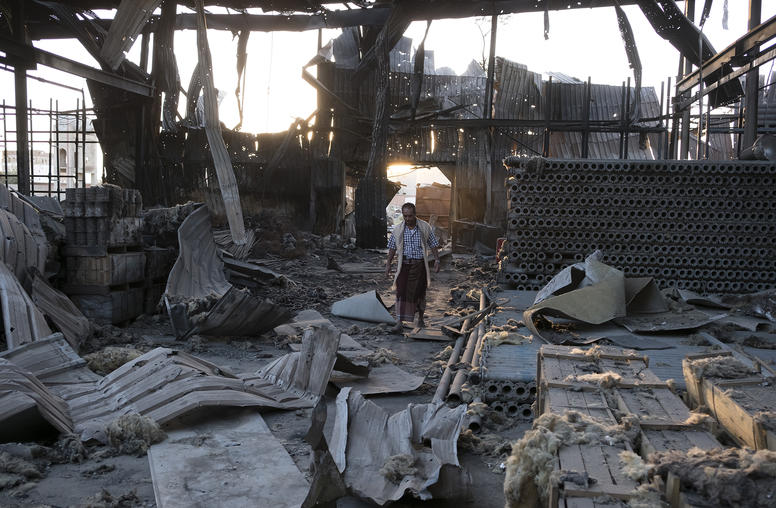
Can Yemen be Pulled Back from the Brink?
Before the war, Yemen was already the Arab world’s poorest country and nearly four years later more than three-quarters of the country’s population is in desperate need of aid and protection, with millions displaced. Further complicating the situation, the conflict has become another battleground in the regional Saudi-Iran power struggle. USIP’s Dr. Elie Abouaoun and Sarhang Hamasaeed analyze the multi-layered nature of the conflict, Yemen’s dire humanitarian situation and the prospects for peace.
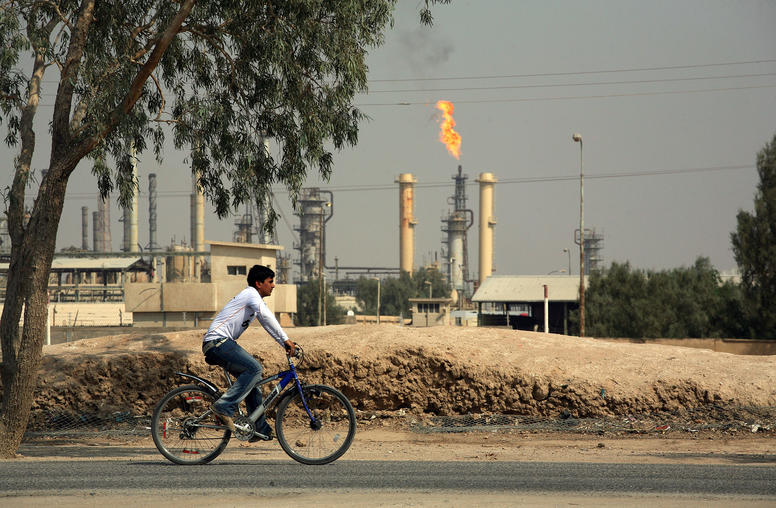
Iraq’s Protests Show the Fragility that Gave Rise to ISIS Remains
In recent weeks, tens of thousands of Iraqis in southern provinces of the country took to the streets to demand action over the lack of basic services and jobs. The protests began in the oil-rich Basra province, where people struggle with lack of clean water and electricity—amid temperatures exceeding 120 degrees—and economic injustice, among other challenges.

Sarhang Hamasaeed on Iraq’s Elections
Following the surprise win by controversial Shia cleric Moqtada al-Sadr and his Sairoon coalition in Iraq’s May 12 parliamentary elections, a new coalition government has yet to form. USIP’s Sarhang Hamasaeed analyzes what led to al-Sadr’s victory, low voter turnout at the polls, the state of the political process in Iraq, and Iraqis’ expectations for meaningful reform from the next government.
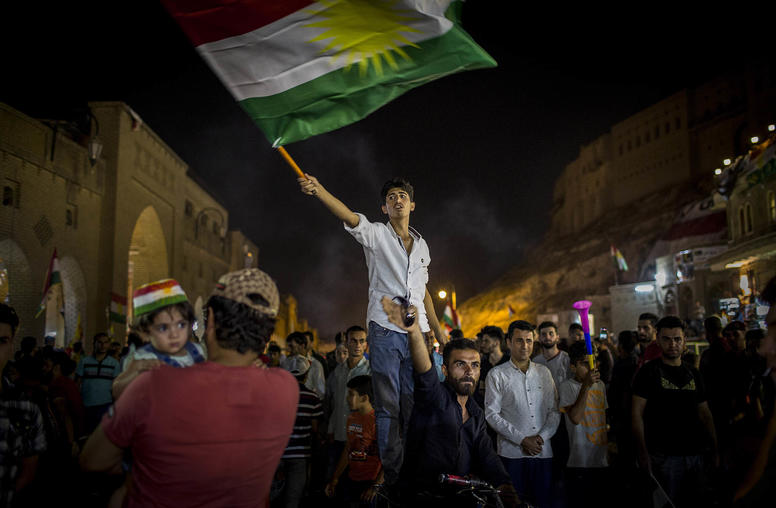
Why Baghdad Should Help the Kurdistan Region’s Debt Crisis
The mounting debt crisis of Iraq’s Kurdistan Regional Government poses a long-term threat to the country’s economy and ultimately, perhaps, its stability. For now, Iraqi political leaders are consumed with negotiating a new, post-election government, but a solution to the KRG’s insolvency cannot wait too long. It will require the next government to quickly put aside parochial politics and help the KRG find creative ways to restructure its debts.
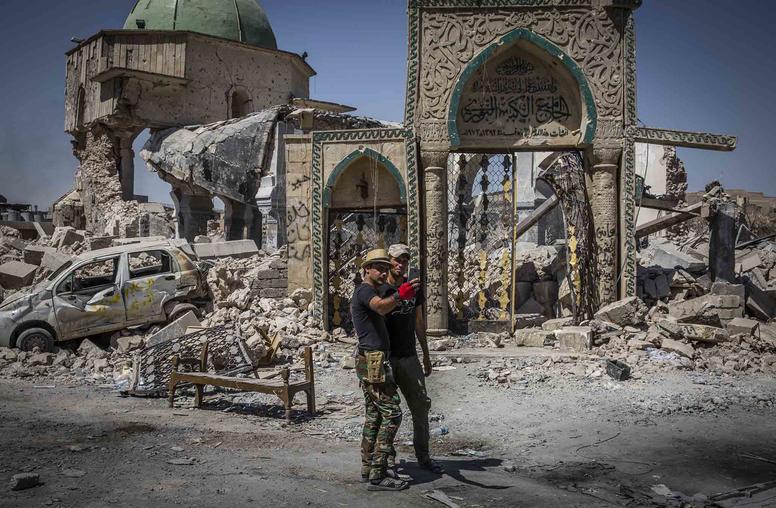
After ISIS, Iraqi Voters Demand Good Governance
When Iraqis went to the polls on May 12, the country’s foreign policy was the last thing on their minds. For the vast majority, the central question about the next government was expressly local: Will it be able to deliver services, get the economy moving and, perhaps most important, curb corruption?
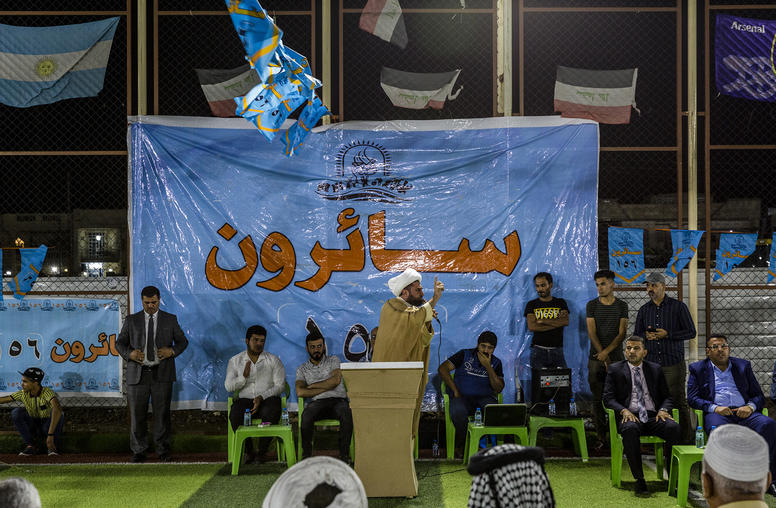
Will Iraq’s Surprise Election Results Bring Change?
In a surprise turn, preliminary results from Iraq’s May 12 parliamentary vote indicate that a coalition led by controversial cleric Moqtada al-Sadr—a staunch opponent of both U.S. and Iranian influence in Iraq—won the most seats.
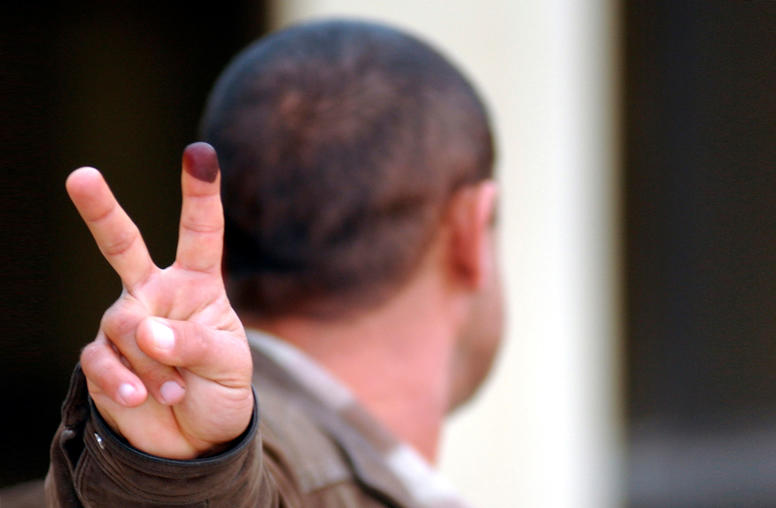
Iraq’s Election Takes a Tone That’s Hopeful for Democracy
As Iraq prepares to vote on May 12, the public debate has been just a bit unusual. Following the country’s war against the Islamic State extremists, candidates are seeking votes with appeals across sectarian lines and more discussion of issues than in any other election campaign. This change is incremental but is one of several that make this a moment to step back and measure Iraq’s evolution since the 2003 U.S.-led invasion. Despite what Iraqis have suffered over 15 years—or perhaps because of it—the will to democratize is alive and growing. A real meaning of these elections is this: If the United States and the international community can sustain their engagement, Iraq has a chance to stabilize, and to turn back the inevitable future attempts to revive extremist violence.
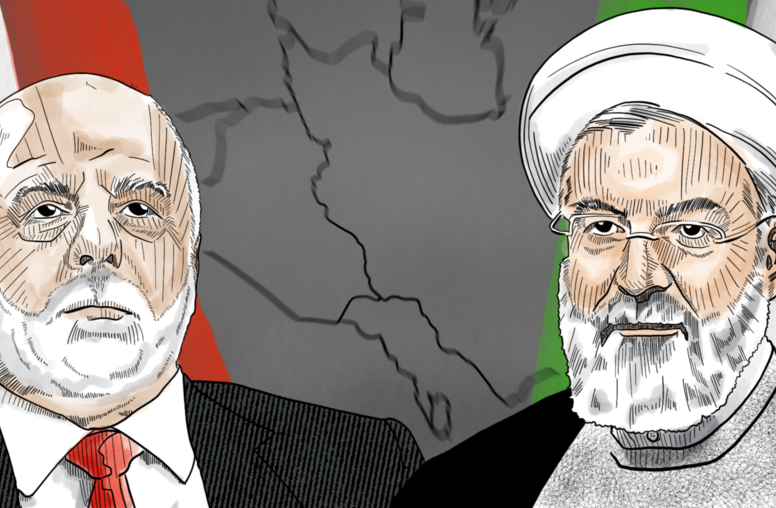
As Iraq Prepares for Elections, Iran's Influence Looms Large
Tehran’s interventions in conflicts throughout the Middle East have become a particular point of contention for detractors of the Iran Deal, which placed constraints on the country's nuclear program without addressing its role in Syria, Yemen, and across the region. There is no place Iranian influence has played a more conspicuous role than in neighboring Iraq.
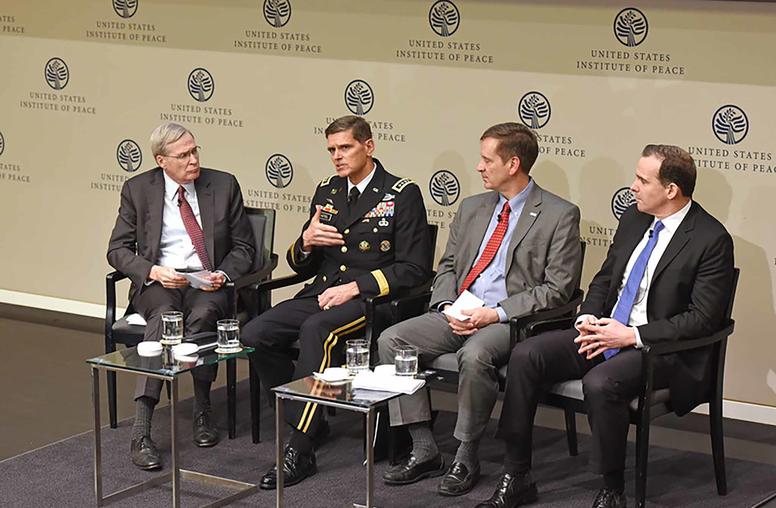
Tilting Iraq and Syria Toward Stability—and Away From ISIS
With last year’s military rollback of the ISIS-declared caliphate, U.S. security and Middle Eastern stability require some way to establish governance in Iraq and Syria that meets the needs of their peoples, according to U.S. administration and military leaders, Iraqi officials and regional experts speaking on April 3 at USIP. During a day-long examination of strategy to stabilize the region and prevent a revival of ISIS, U.S. special presidential envoy Brett McGurk said President Trump’s March 30 order to freeze spending on post-combat recovery efforts in Syria “is not hampering our work in the field.”